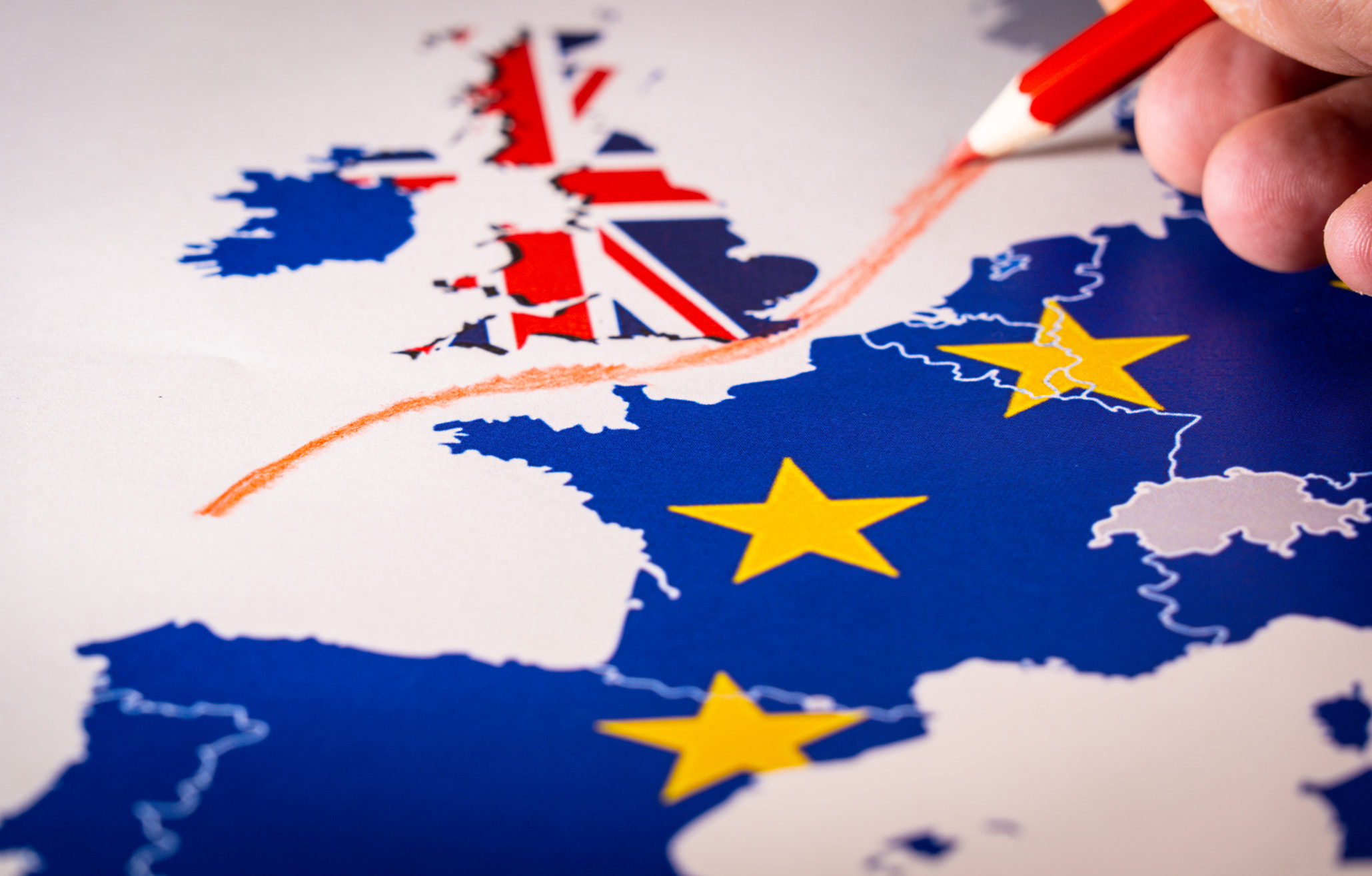


Has the COVID-19 Pandemic pushed the UK through a trap door for a no deal, as we have run out of time… OR should the UK extend the period for negotiation and accept the glass ceiling, in terms of lack of control of our own destiny, imposed by Europe?
Remember when Brexit was Britain’s most talked about topic? Following the 2016 EU Referendum we could not escape the Brexit headlines for the following three years. Who could have anticipated the wake of the Coronavirus Pandemic, where Brexit talks have taken a back seat while the world stared on, quite literally, from behind closed doors. Now that we are facing the economic downturn as we hopefully begin to recover from the Pandemic, how have such a turn of events affected Brexit?
The coronavirus has dampened the noise of Brexit in the press, but it has not dampened the necessity for negotiation and completion. Ongoing meetings have continued for Brexit negotiators in London and Brussels and both have adapted to the online “virtual” world, which brought further sets of challenges. On a wider scale, the pandemic is fracturing the powerful concept of globalisation making continents more prominent again but bound principally by location due to the effects on travel and a move away from such a heavy reliance on manufactured goods and materials from the far east.
The UK Government has continued its preparations to leave its biggest trading partner by the end of 2020 and decided against an extension to the transition period despite some public interest strongly supporting the EU’s proposition to do so.
The timeline for the transition was tight but, the pandemic has tightened it even further, making it ever more likely that continued negotiations will result in a no-deal Brexit.
Without an extension, EU law will cease to apply to the UK from the 31st of December 2020 or until the UK revokes these regulations with modifications. The uncertainty of future regulations makes it difficult to predict the forthcoming impact on commercial contracting arrangements in the UK. EU laws have been incorporated into the UK’s legal system for decades and will not instantly fall away, so it can only be assumed such laws will be gradually repealed including laws surrounding competition, data protection, and the enforcement of contracts.
Whilst outcomes remain equivocal, companies who enter into commercial contracts both within the UK and across Europe, to service supply chains that span borders whether for services or products and materials, should begin to assess the potential affects of Brexit without an extension.

An extension would arguably bring greater uncertainty, altering both the UK and the EU’s position, extend negotiations, create business ambiguity, lengthen the period of time before the UK gains unilateral control of its borders and questionably, it may hamper the UK’s ability to recover economically from the Covid-19 Pandemic.
Legally, an extension to the transition could require substantial financial commitments from the UK as we would remain subject to the EU’s Common Commercial Policy. With an extension, the UK would continue to contribute to the EU’s Multi-Annual Financial Framework, with the sum equalling as much as £800m per month. The UK would be unable to strike deals with other countries and damaging tariffs placed within the EU would also affect UK trading. Worryingly, the US has already threatened “arbitrary tariffs” on the EU.
The EU maintain their push of a ‘deep-association agreement’ regarding competition, employment, environmental legislation and state aid by ensuring the UK are still subject to the European Court of Justice’s jurisdictions. However, the UK has continuously utilised both Canada’s (The Comprehensive Economic Trade Agreement) and Japan’s trade deal’s (EU-Japan Economic Partnership Agreement) to proclaim that both nations are not subject to such restrictive measures and so, the UK do not wish to be either.
As both parties remain at odds, without an extension it is unlikely that an agreement will be reached and Brexit will proceed with a no-deal.
Unfortunately, it remains unclear how current EU laws will be adapted or abandoned once the UK is absent from EU pressures.
No one can know exactly how negative or positive a no-deal exit could be but, combining the chaos of a no-deal and at the same time as the unprecedented impact of COVID-19, this could be a very risky combination. Will the UK’s hard efforts to be in control of its own borders pay off or cause a deeper economic recession?
As Churchill proclaimed, “you should never let a good crisis go to waste”. Dramatic change caused by the Pandemic could be argued to have caused economic and social upheaval far-greater than we were ever anticipating before the Pandemic loomed and therefore who knows what opportunities for growth may or may not arise from a no-deal Brexit in this “New Normal”.
No doubt the nation will continue to be split. There could be significant opportunities ahead for UK businesses under newly constructed free trade agreements and smarter regulations. Whilst the ambiguity is daunting, it will be interesting to see how Brexit may alter the commercial contract lifecycle, our supply chains and cross-border contracts.
With greater economic, political and legislative flexibility and control, arguably the UK has more control to resuscitate and recuperate the economy following the negative impacts of the Pandemic.
Will we look back with hindsight and think an extension was preferable despite the ongoing cost to the UK? Will Britain be seen to have benefitted from a no-deal exit?
Time will tell whether an extension would have been better or worse than a no-deal. How will this affect those operating within the commercial contract lifecycle, as advisors or as organisations carrying out their business operations against a backdrop of change and chaos?
A good procurement or a sound contract arrangement should be more than capable of accommodating change, whether big or small, so where these exist we should take confidence that we can overcome whatever uncertainty we face… and where the contract clauses, obligations, rights and remedies are not certain the clock is ticking to get our house in order to have the best chance of riding the storm.

